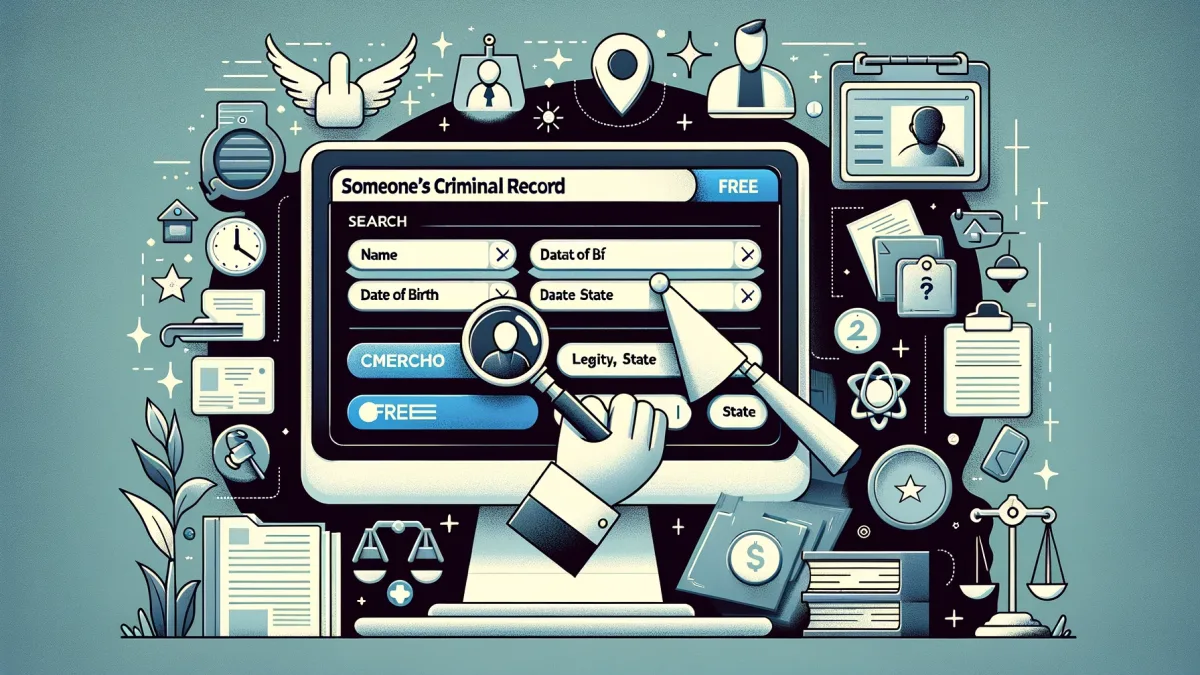Whether for personal safety, employment background checks, or researching family history, there are legitimate reasons you might want to look up someone’s criminal record. In the United States, access to criminal records can vary widely by state and jurisdiction, given the balance between public interest and individual privacy rights. As a legal professional, I’m here to guide you through the process of accessing these records without incurring significant costs.
Understanding Criminal Records
Criminal records, public documents that record an individual’s criminal history, vary widely across jurisdictions in the United States. They can include information on arrests, convictions, sentences, and even parole details. However, the accessibility of these records can differ based on state laws and the nature of the record.
Free Resources to Access Criminal Records
1. State and County Court Websites
Many state and county courts offer online access to criminal records. While the extent of available information varies, most provide basic details on criminal cases, including case numbers, charges, and outcomes. Utilizing these court portals often requires knowledge of the jurisdiction where the record might be located.
- Keyword Tip: “State/County Court Records Online”
2. National Sex Offender Public Website (NSOPW)
The NSOPW allows you to search for sex offenders registered in all 50 states, territories, and Indian tribes. It’s a consolidated database that provides an easy way to search for individuals convicted of sex crimes.
- Keyword Tip: “NSOPW Sex Offender Search”
3. State Department of Corrections Websites
Most state departments of corrections maintain online databases of individuals who are currently incarcerated or have been released. These databases typically offer details about the conviction and sentence.
- Keyword Tip: “State Department of Corrections Inmate Search”
4. PACER (Public Access to Court Electronic Records)
While not free, PACER provides extensive access to U.S. appellate, district, and bankruptcy court records and documents nationwide for a nominal fee. It’s a valuable resource for more in-depth research.
- Keyword Tip: “PACER Court Records”
5. Google and Social Media
Sometimes, a simple Google search or a search on social media platforms can reveal information about an individual’s criminal history, especially if it was covered in the media. However, ensure to verify any information found through these means.
- Keyword Tip: “Person’s Name + Arrest or Conviction”
Tips for Effective Searching
- Be Precise: Ensure you have accurate information about the person, including their full name, birth date, and Social Security number if possible.
- Know the Law: Familiarize yourself with the privacy laws and regulations in your state regarding criminal record checks.
- Check Multiple Sources: No single database covers all criminal records. Checking multiple sources can provide a more comprehensive view.
Legal Considerations and Ethics
While searching for criminal records is legal for personal use in many contexts, using this information, especially in decision-making processes like hiring, requires adherence to laws such as the Fair Credit Reporting Act (FCRA). Always ensure your use of criminal records complies with all relevant federal, state, and local laws.
The Impact of Expunged or Sealed Records
It’s important to note that some records may be expunged or sealed, meaning they are not accessible to the public. These laws are designed to protect individuals’ privacy and give them a second chance by not allowing a past conviction to affect their future permanently.
Navigating Challenges and Ensuring Accuracy
The biggest challenge in looking up criminal records for free is ensuring the accuracy and completeness of the information. Databases can be outdated, and records can vary between jurisdictions. Whenever possible, verify the information through multiple sources or consider consulting a legal professional for sensitive matters.
The Role of Paid Services
While this guide focuses on free resources, numerous paid services offer comprehensive background checks. These services can aggregate data from multiple databases, providing a more detailed report. However, for most personal and informal inquiries, free resources are a good starting point.
Conclusion
Looking up someone’s criminal record for free requires patience, diligence, and a respectful approach to privacy and legality. By utilizing available public resources and understanding the legal framework, you can access important information while ensuring your actions remain within ethical and legal boundaries.
Remember, the purpose of accessing criminal records should always be grounded in legitimate concerns and transparency, particularly when the information impacts decisions about employment, housing, and personal relationships.









Leave a Reply